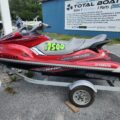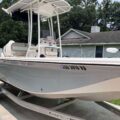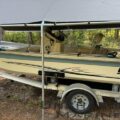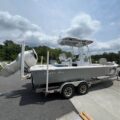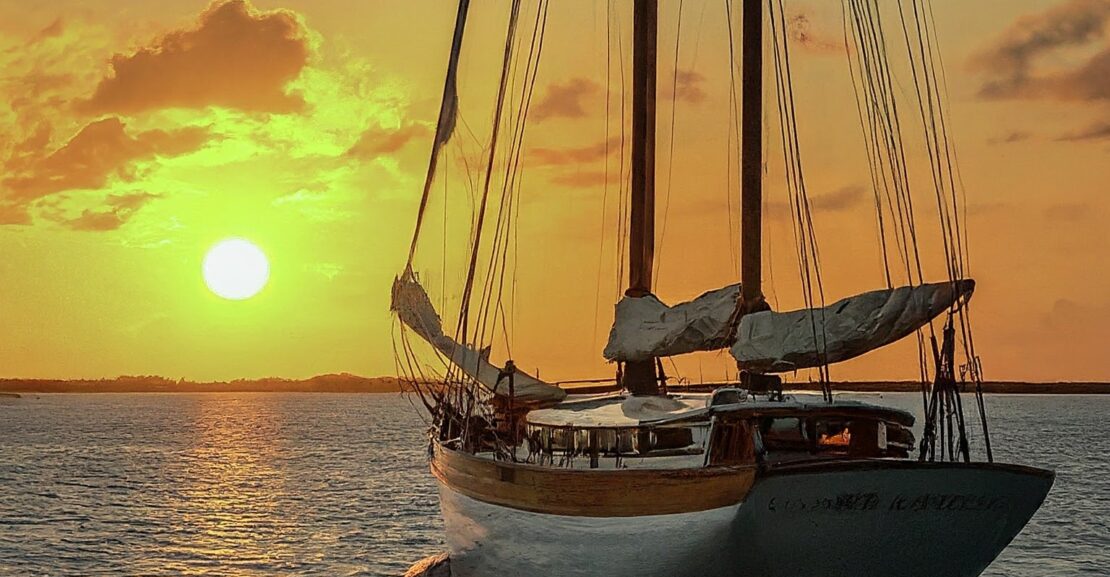Crossing to the Bahamas: A Comprehensive Guide for Boaters
The allure of the Bahamas with its turquoise waters, pristine beaches, and vibrant marine life is undeniable. For boaters, making the crossing from Florida is an adventure that promises unforgettable memories. However, the open ocean demands respect, and meticulous preparation is crucial for a safe and enjoyable journey. Here’s an in-depth look at the essential factors to consider:
1. Weather Wisdom: Your Most Critical Ally
- Forecasts and Beyond: Relying solely on a pre-departure weather check is a recipe for trouble. Conditions can change rapidly, especially in the Gulf Stream. Invest in a reliable marine weather radio to stay updated on real-time forecasts and warnings.
- The Perfect Window: The ideal crossing conditions involve light winds (less than 15 knots), calm seas (wave heights under 3 feet), and good visibility. Aim for these conditions to minimize the risk of encountering rough seas or storms.
- Seasonality Matters: Hurricane season (June 1st to November 30th) brings the highest risk of tropical storms and hurricanes. Even outside this window, be wary of cold fronts during winter, which can generate strong winds and choppy seas.
- Flexibility is Your Friend: Have a flexible itinerary and be ready to postpone your departure if the weather isn’t cooperating. It’s always better to wait for safer conditions than to put yourself and your crew at risk.
2. Safety is Non-Negotiable:
- Life Jackets: Ensure everyone on board has a properly fitting, U.S. Coast Guard-approved life jacket, and encourage them to wear it at all times, especially in rough conditions or when venturing on deck at night.
- Communication is Key: A VHF marine radio is essential for communication with other vessels and shore stations. Consider a backup communication device like a satellite phone or personal locator beacon (PLB) for emergencies, especially if venturing beyond VHF range.
- Navigation Expertise: Rely on a combination of electronic and traditional navigation tools. A GPS chartplotter provides accurate positioning, but always have up-to-date paper charts and a compass as backup.
- Emergency Preparedness: Stock your boat with a comprehensive safety kit, including flares, a first-aid kit with seasickness medication, a fire extinguisher, a throwable flotation device, and a signaling mirror.
- Float Plan: The Lifeline: Never leave without filing a detailed float plan with someone you trust. Include your route, expected arrival time, vessel information, and emergency contact details. This information will be invaluable to search and rescue teams in case of an emergency.
3. Fuel Management: Don’t Get Caught Short
- Calculate with Care: Know your boat’s fuel consumption rate at different speeds and factor in potential headwinds and currents. Always carry a reserve of at least 10-20% beyond your estimated fuel needs.
- Fuel Stops: Plan your fuel stops carefully, ensuring you have enough fuel to reach your destination and any potential alternative ports in case of unforeseen circumstances.
- Jerry Cans for Peace of Mind: Consider carrying extra fuel in jerry cans for longer crossings or if fuel availability is uncertain at your destination.
4. Estimating Travel Time: A Realistic Outlook
- Distance and Speed: The crossing time varies significantly depending on your boat’s speed and the distance to your chosen destination. The closest Bahamian island to Florida is Bimini, roughly 50 nautical miles from Miami. With an average cruising speed of 20 knots, this crossing could take about 2.5 hours in good conditions.
- Weather and Currents: Remember that adverse weather or strong currents can slow you down and impact your estimated arrival time.
5. Additional Considerations: Smooth Sailing
- Clear Customs and Immigration: Research and comply with the entry and customs procedures for the Bahamas. Have all necessary documents, permits, and passports readily available for inspection.
- Local Expertise: Consult with experienced boaters or local marinas for valuable insights on recommended routes, anchorages, potential hazards, and local regulations.
- Boat in Tip-Top Shape: Before embarking on an open-water crossing, ensure your boat is in excellent working condition. Conduct a thorough inspection of the engine, electrical systems, navigation lights, bilge pumps, and all safety equipment.
Cocoa Beach, Florida: Your Gateway to the Bahamas
Cocoa Beach, with its convenient location and access to the Atlantic Ocean, serves as an excellent starting point for your Bahamian adventure. The city boasts several marinas equipped to handle various vessel sizes and provide essential services. Remember, responsible boating and adherence to safety guidelines will ensure a memorable and worry-free experience.
Remember: This guide offers general information, and it’s essential to consult official sources and seek advice from experienced boaters for the most up-to-date safety recommendations and regulations. Happy boating!

